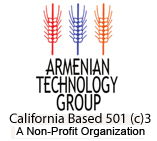U.S. Ambassador to Armenia Finds Hope in Armenia's Economic Potential
| June 6, 2003
By John Ellis Times are tough in Armenia, but there is hope, potential and a highly dedicated diaspora in the United States, said John M. Ordway, America’s ambassador to the Caucasus nation. Ordway, who was posted to Armenia 18 months ago, arrived in the Valley on Thursday afternoon. The fourth American ambassador to Armenia since the country gained its independence, Ordway is the first to see Fresno. He will be here until Sunday, visiting Armenian organizations, churches and agricultural groups — which he has done in San Francisco and will next in Los Angeles — informing the Armenian-American community “what we’re doing with the taxpayer dollars they have worked so hard to produce.” More than 100 people came to the social hall at Pilgrim Armenian Congregational Church on Thursday evening to hear Ordway talk about the state of Armenia, to watch a video on progress in the nation and to ask the ambassador questions about where the country is headed. Ordway, who grew up in Gilroy, started his talk — and impressed those present — by saying, in Armenian: “Good evening. I’m very happy to be with you in Fresno.” He then exhausted his knowledge of the language by telling the group: “Please excuse us for being late.” It’s a phrase, he said, he uses often in Armenia, where local hospitality often slows his progress and puts him behind schedule. Thursday, he was late coming from dinner. After being introduced, however, it didn’t take Ordway long to get to the heart of his visit — a look at Armenia. He brought along Keith Simmons, who oversees Armenia for the United States Agency for International Development, to help paint the picture. A dozen years after gaining independence from the Soviet Union, that picture is mixed, Simmons said. On the good side, the nation has a stable currency, low inflation and a growth rate that averages 6% and was at 13% last year. The country has found success in some niche industries, such as diamond polishing, exporting textiles and a burgeoning high-tech industry. On the bad side, the distribution of wealth is very narrow, there is corruption, the poverty rate is 50% and the average wage is $44 a month. In addition, Ordway said, “Armenia is in a very challenging neighborhood.” There is Georgia, which is unstable and has ethnic tensions and civil strife; Turkey, which has no relations with Armenia; Azerbaijan, which fought a war with Armenia in the 1990s; and Iran, which is an outlet for Armenian goods but has also been identified by President Bush as part of an “axis of evil.” The goals of USAID and the United States in Armenia, Ordway said, are to help transition from a communist one-party state to a multiparty democracy, to move a centralized economy overseen by the government to the free market and to help ease that transition for Armenia’s residents. Helping out immensely, Ordway and Simmons said, have been Armenian-Americans, who have kept pressure on Congress to help. The past few years, $90 million annually has been authorized by Congress, Ordway said. “We’ve had some impact, we’ve had some failures,” Simmons said of the American effort. “But I can tell you the money has had some effect.” While in Fresno, Ordway’s schedule is tight. His host is Varoujan Der Simonian, executive director of the Armenian Technology Group. Ordway will be at St. Paul Armenian Church tonight, and at St. Gregory’s in Fowler and Holy Trinity Armenian Apostolic Church in downtown Fresno on Saturday. He’ll also chat with agricultural groups and visit places such as the National Raisin Company. For more information about how you can help Armenia’s farmers, contact the ATG office at (559) 224-1000 or by e-mail (info@atgusa.org). Tax-deductible donations can be sent to ATG; 1300 E. Shaw, Suite 149; P.O.Box 5969; Fresno, CA 93755-5969. |

Follow Us